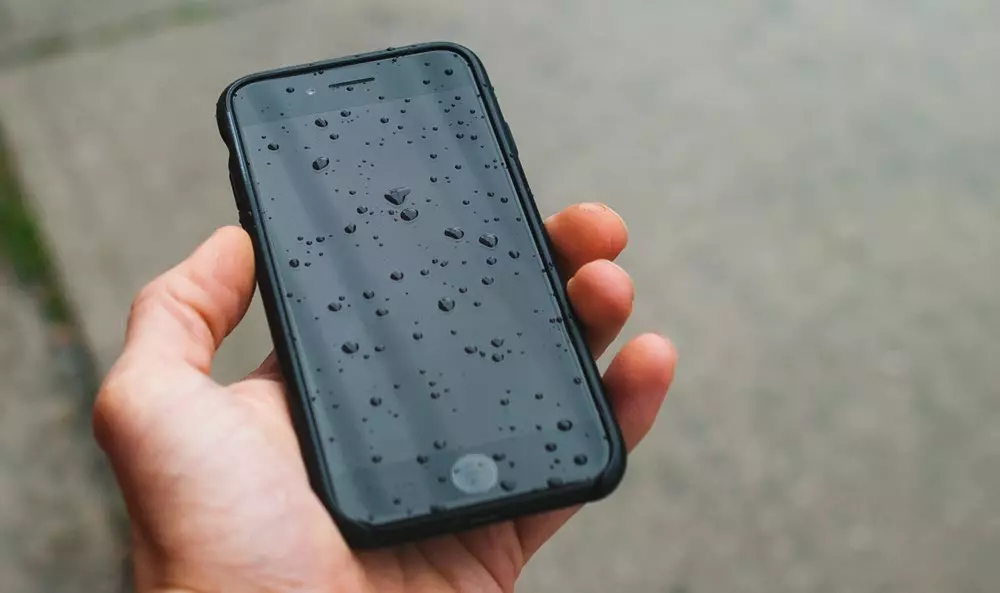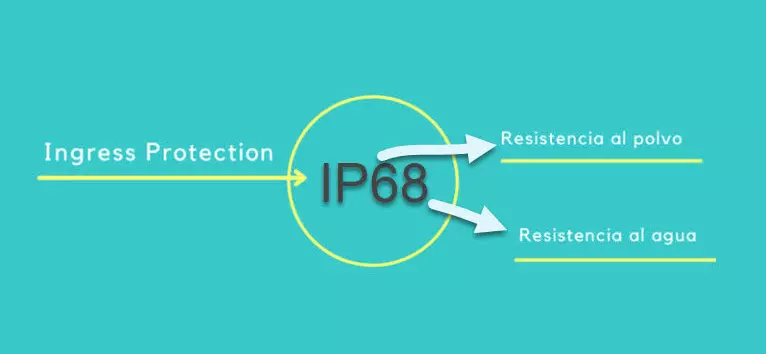
IP68 or IPX8? Surely you have seen this type of data more than once when you review the technical sheet of a mobile. However, so many letters and numbers may confuse you, and you may not understand what they mean or which one is best for your device.
But if you want to know if your mobile is resistant to water and dust, this is the information you should know to have that information. What differences are there between IP68 and IPX8? Which offers better protection against dust and water? We tell you all these details below.
WHAT IS IP, AND WHY THE NUMBERS VARY
If you have bought a mobile or a wearable, you may find yourself among its specifications with IP55, IP68, IP67, etc. This specifies the degree of protection it provides against dust and water , under IP (Ingress Protection) certification.
However, a detail to keep in mind is that each digit represents a different degree of protection, which is independent of the number that follows it.

As you can see in the image, the first number defines the degree of protection it provides against the entry of dust, taking into account a scale from 0 to 6. And the second number establishes the degree of protection or resistance against liquids, in a scale from 0 to 8.
So a device with IP68 offers level 6 protection against dust and level 8 protection against water, according to the standard created by the IEC (International Electronic Commission).
|
dust resistance |
Waterproof |
| 0 |
Does not offer protection |
Does not provide protection |
| 1 |
Provides protection against the entry
of elements up to 50 mm in diameter |
Protection against dripping water inlet that
falls vertically
|
| two |
Protection against elements up to 12.5 mm in diameter |
Protection against drops of water with up to 15°
tilt |
| 3 |
Protection against elements up to 2.5 mm in diameter |
Spray water protection |
| 4 |
Protection against elements up to 1 mm in diameter |
Protects against splashing water from any direction |
| 5 |
Does not allow an amount of
dust to enter that could harm the equipment |
Protects against low pressure water jets |
| 6 |
Does not allow dust to enter |
Protects against powerful water jets |
| 7 |
– |
Protects against complete immersion in water
(at a depth of 1m for 30 minutes) |
| 8 |
– |
Protects against complete and continuous immersion
(varies by manufacturer) |
As you can see in the table above, a device with IP 6 8 has complete protection against dust, not allowing it to enter its interior. And as for the level of resistance to water, a mobile with IP6 8 offers "protection against complete and continuous immersion", although keep in mind that the actual degree of protection against water will be determined by the manufacturer .
But be careful, having this level of protection against dust and water does not mean that the mobile becomes indestructible and you can expose it to any situation.
WHAT IS THE DIFFERENCE BETWEEN IP68 AND IPX8 AND WHICH ONE PROTECTS BETTER
We have already seen that IP68 offers high protection against dust and water, under this type of certification. And what about IPX8?
Before we showed you that each number that accompanies IP represents the degree of protection it provides: the first digit corresponds to protection against dust, and the second, to water. If a number does not appear (taking into account the scales that we saw before) and an X is added, it means that the device does not provide that protection or the manufacturer has not provided that information .
In the case of IPX8, then we find that it has a high degree of protection against water, just like iP68, but it does not have any type of protection against dust . So between the two, having IP68 guarantees you better, or more complete, protection for your device.
However, keep in mind that even this protection has limits. And although he will be able to save you on more than one occasion, you do not have a free hand to expose him to any type of situation. And one detail that you should not forget is to check what the manufacturer says about the protection specifications they provide on their devices against water, even when you have the maximum number.
For example, some manufacturers mention that IPX8 on their devices provides protection in fresh water in "up to 1.5m temporary immersion", and others might specify that the protection is for a "maximum depth of 2m with a maximum soak time". 30 minutes".